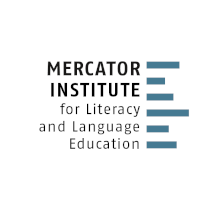Language support and intervention programmes for newly arrived migrant children in nursery schools
According to the Federal Office for Migration and Refugees, there was a total of 441,899 initial applications for asylum and 34,750 follow-up applications in Germany in 2015, almost a third of the applicants being under the age of 16 (cf. BAMF: Current asylum figures, December 2015 edition). The total number of newly arrived migrants with little or no knowledge of German, including those from EU countries, is significantly higher – in 2014, foreigner statistics showed that a total of 1,145,953 people immigrated to Germany (according to the Federal Statistical Office’s statistics on foreigners).
As regards the question of how newly arrived migrant children can get off to the best possible start and learn German, there is still a strong focus on schools at present (cf., among others, Massumi/v. Dewitz 2015). Preschool is also facing challenges, however. Many nursery schools are taking newly arrived children who need to acquire extensive German language skills in a short space of time: after all, newly arrived children aged four to five have little time to prepare themselves for the language requirements of primary school. At the same time, the principle of incorporating language support for all children into activities throughout the day has been introduced in nursery schools all over Germany in recent years. However, language support concepts specifically designed for children with German as a second language are rare.
At the request of RuhrFutur, the Mercator Institute has compiled an overview of the programmes for (second) language support in preschool education. Relevant academic literature was reviewed systematically to answer the following questions: Which educational policy structures exist for early-years education in German-speaking, European and Anglo-Saxon countries? Which language support concepts in preschool education have already been implemented for some time and on a wide area? Which concepts have already been (positively) evaluated? Do specific language support concepts exist for newly arrived migrant children?
At a glance
Objective | The objective of the project is to compile an overview of international support and intervention programmes in preschool education. |
|---|---|
Contracting Authority | RuhrFutur gGmbH |
Duration | November 2015 - February 2016 |
Project Management | Katarina Wagner |
Project Team | Dr. Hilke Engfer Dr. Evghenia Goltsev |
